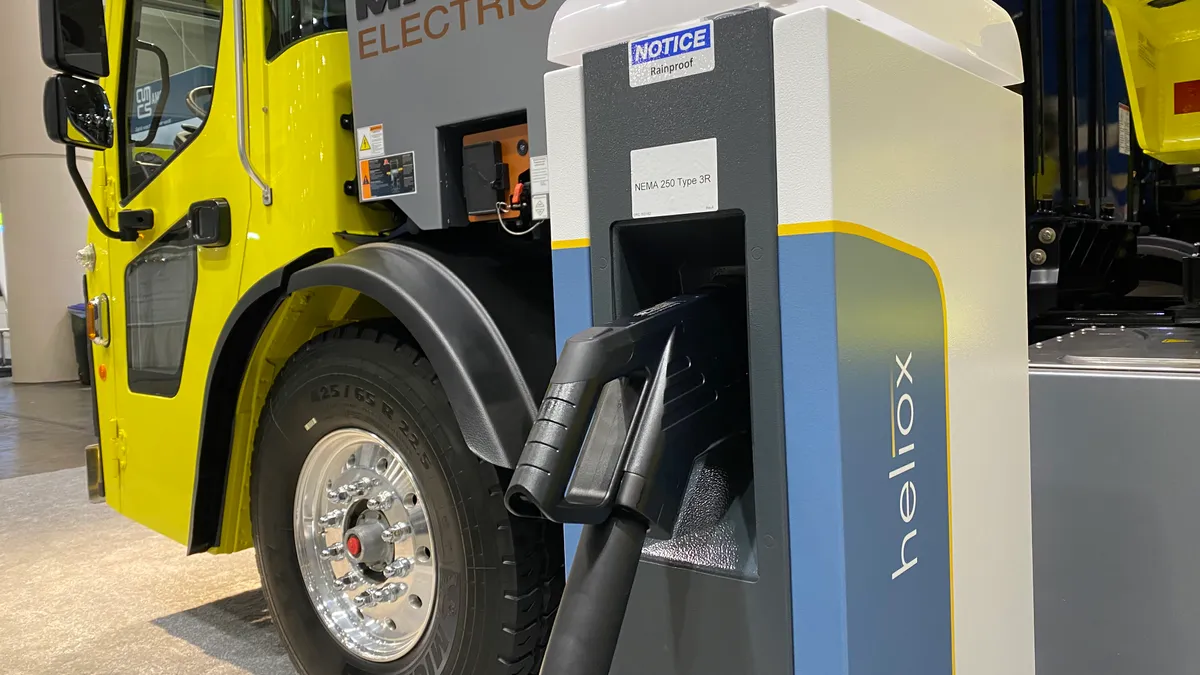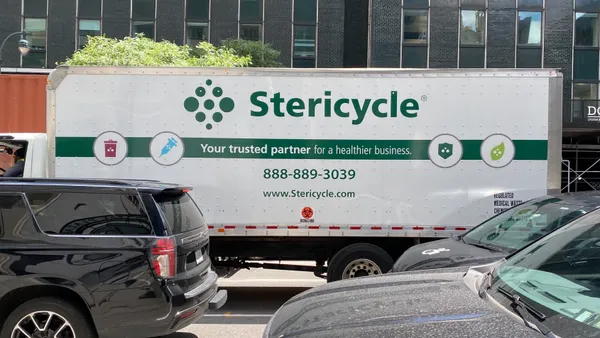Dive Brief:
- The Pennsylvania Department of Environmental Protection is issuing $39.6 million in state grant funding to assist diesel-fueled fleets in transitioning to zero-emission vehicles, a portion of which will go to Class 8 refuse vehicle fleets.
- Five of the listed recipients will acquire a total of 32 battery-electric refuse collection vehicles. The grants will also support building charging capacity for the new vehicles.
- The funding comes as the U.S. EPA has indicated it's close to implementing its Phase 3 rules for heavy-duty vehicles, which would begin transitioning fleets to zero-emission vehicles in 2027. Other states are adopting rules set by California that would require even faster adoption.
Dive Insight:
The grants announced Wednesday come from a trust fund created after the Volkswagen lawsuit regarding unlawful emissions from its diesel vehicles. Pennsylvania's portion of the fund totals $118.5 million, and it has used the funding for its Driving PA Forward program to reduce the release of nitrogen oxide emissions by shifting truck fleets off of conventional diesel engines.
The awards are another step forward for the emerging battery-electric refuse vehicle market, which has been fueled in part by public commitments. New York City recently ordered seven battery-electric refuse vehicles for its own fleet, and other cities have begun to require haulers pilot the technology in their collection contracts.
By 2022, clean transportation group CALStart estimated nearly 270 zero-emission refuse trucks had been deployed in the U.S. Their rollout was slowed alongside diesel and CNG-fueled vehicles during the pandemic due to supply chain woes, but industry experts expect adoption to pick up in the coming years.
A growing proportion of public and private fleets alike have committed to transitioning at least a portion of their fleets away from fossil fuels. Republic Services CEO Jon Vander Ark said last year that he hopes the hauler will have 50 zero-emission trucks on the road in 2024. Other haulers, including WM, Casella, WIN Waste Innovations and others have also committed to at least piloting the vehicles in their own fleets in jurisdictions ranging from Vermont to Colorado to Florida.
Regulatory pressures are also mounting on fleets to make a switch. On Dec. 20, the EPA finalized the first phase of its Clean Trucks Plan, which sets standards regarding heavy-duty truck emissions. In its announcement, it indicated it was close to finalizing its Phase 3 emissions rule for vocational heavy-duty vehicles like refuse haulers, requiring those fleets to have 20% zero-emission vehicles in 2027.
At least one other state, Delaware, has allocated funding from the VW settlement to support the replacement of refuse trucks with battery-electric vehicles, according to the National Association of Clean Air Agencies. California, which has the most stringent regulations transitioning medium- and heavy-duty vehicle fleets to zero emissions, has also made VW funds available for waste haulers to ease the transition.
In a statement announcing the Pennsylvania grants, DEP Interim Acting Secretary Jessica Shirley said this latest funding round was the agency’s largest yet in its Driving PA Forward program to reduce emissions from high-polluting diesel engines.
“Clean air is crucial in ensuring a healthy environment,” Shirley said. “That’s why we see it as our mission to address one of the most significant air quality challenges facing our Commonwealth—emissions from transportation.”
The grants allocated would support the following recipients:
- Borough of Munhall, which will receive $1.68 million to replace three refuse collection trucks with battery-electric trucks and install one DC fast charger with three plugs
- Pro Disposal, which will receive $6.19 million to to replace 16 refuse trucks with battery-electric trucks and install 16 DC fast charging plugs
- City of Chester, which will receive $1.58 million to replace three refuse trucks with battery-electric trucks and install 1 DC fast charger with two plugs
- City of Erie, which will receive $3.12 million to replace five refuse trucks with battery-electric trucks and install three DC fast chargers and one Level 2 charger
- Tri-County Industries, which will receive $2.79 million to replace five refuse trucks with battery-electric trucks and install one DC fast charger and three Level 2 charger.











